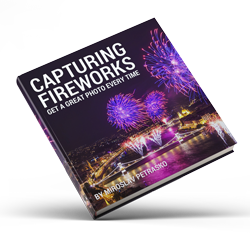Burj Khalifa lights
Today’s photo is one from under the Burj Khalifa in Dubai, UAE. It was taken right during the light show, that is there every evening. Actually, the reason the whole tower was red that day, is because it was the Chinese new year. They really like to change up the lights based on different occasions. I really liked these dandelions so I have them as the foreground element in many of my Burj Khalifa shots. I even wanted to go close to the tower to get a shot even more from under it, but the security guards were not happy with the tripod. Strangely, they have no problem with them in the tower, just outside. Photo rules are strange all over the place.
This is a single exposure, split into two and blended together in Photoshop.











